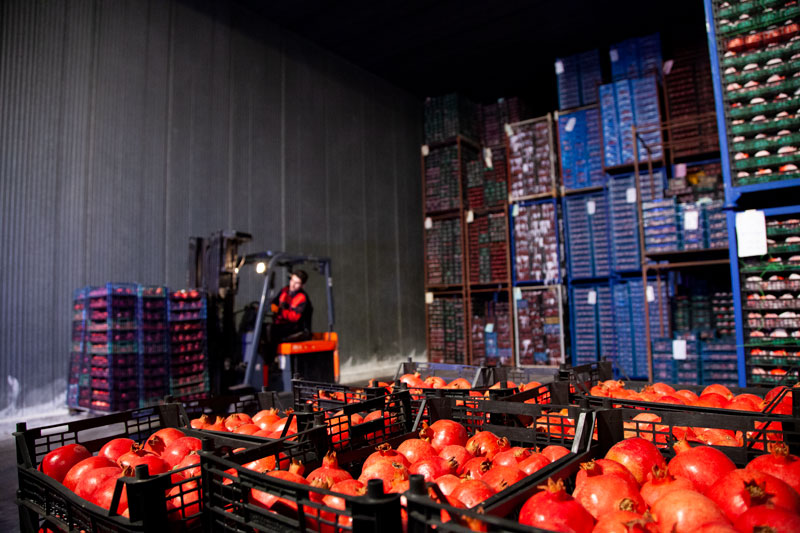Fruit and Vegetable Cold Storage
Written by Kiwiran | 1402/09/12
Cold Storage
One of humanity’s long-standing concerns has been preserving products such as fruits and vegetables for extended periods. Some fruits, upon ripening, are not immediately suitable for market distribution. For this reason, farmers and orchard owners are often required to store these products in fruit cold storage facilities for a certain period without losing their original quality.
This is where the necessity of using fruit cold storage becomes clear. Storing fruits in cold storage—known in English as Fruit Refrigerator—helps control market prices and sometimes even prevents excessive and sudden price increases. In this article, we explain the importance of storing products in fruit cold storage as well as the necessary conditions and regulations for doing so.
?Why Are Fruits Stored in Cold Rooms
Once freshly harvested, products begin to deteriorate, and harmful bacteria start to grow. The low temperatures inside cold storage units stop the growth of these pathogenic fungi and help ensure that the spoilage of fruits and vegetables is minimized. This allows the products to be stored for a period without losing their original quality.
Profitability of Fruit Cold Storage
If fruits are distributed outside their natural harvest season, they will usually yield higher profits for farmers or orchard owners.
:Agricultural and horticultural products are generally harvested at two different times
· Physiological maturity: This is when the product fully ripens on the mother plant, and all parts, including the fruit and its seeds, have reached complete development. Products like grains and legumes are typically harvested at this stage and can be sent directly to market.
· Commercial maturity: This is when the product is harvested earlier or later than its physiological maturity to meet market demands or improve profitability.
For example, consider kiwifruit: If a farmer delivers kiwis to the market at their full physiological maturity, their initial quality will be reduced. Therefore, some products are harvested slightly before full ripening. This early harvest stage is known as the commercial maturity stage.
Cold storage is most commonly used for products in the second category. In some cases, fruits are even frozen for sale in other seasons. Ultimately, the profit from storing fruits in cold storage benefits the farmer or orchard owner directly.

